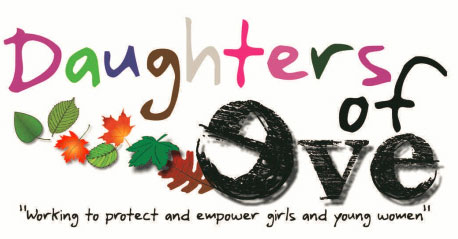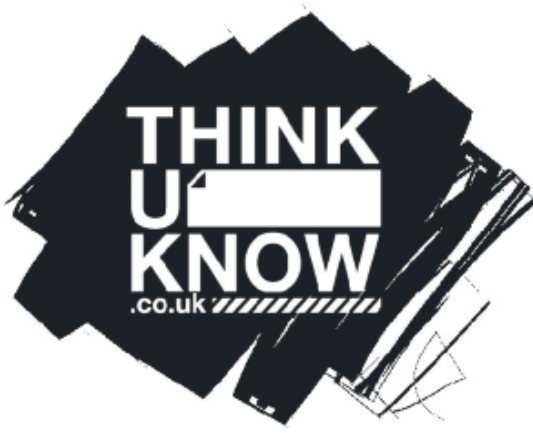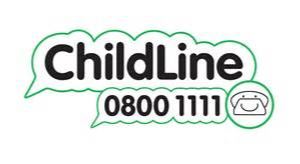Key information menu
Keeping our students safe
At Tiverton High School we are committed to keeping our students safe. Every child has the right to feel safe no matter who they are or what their circumstances.
Safeguarding and promoting the welfare of children is everyone’s responsibility. Everyone who comes into contact with children and their families and carers has a role to play in safeguarding children. In order to fulfill this responsibility effectively, all professionals should make sure their approach is child-centred. This means that they should consider, at all times, what is in the best interests of the child.
At Tiverton High School the Designated Safeguarding Lead (DSL) is Carrie Morrell and the Deputy DSL is Kate Southcott.
If you have a concern regarding a child and would like to discuss your worries please contact Carrie or Kate at safeguarding@tiverton.devon.sch.uk or call the main school number 01884 256655.
If it is outside of school hours please contact Carrie on 07702513401. If you are unable to make contact with Carrie or if, a child is in immediate danger or is at risk of significant harm a call should be made to children’s social care and/or the police immediately. For further advice please call the MASH team on 0345 155 1071 or the police on 999 / 101
Safeguarding Team
At Tiverton High School we work within the guidance and procedures set out in national and local government policies and procedures. All of our staff team have read and understood the information set out in the document Keeping children safe in education 2024 part one and we use the information in the document to inform the way we educate our parents/carers and students on how to keep themselves safe.
All staff at Tiverton High School are level 2 trained or above in safeguarding children. This training is renewed annually and all new staff receive this as part of their induction process if they join after the September annual training. Throughout the year staff also receive additional training on specific safeguarding topics to ensure staff are confident in dealing with a wide range of safeguarding topics. The identified staff on the safeguarding poster are all level 3 trained and renew this training every 2 years in line with guidance.
You can view our THS Safeguarding Poster below and read our Safeguarding policy here: THS Safeguarding and Child Protection 2024
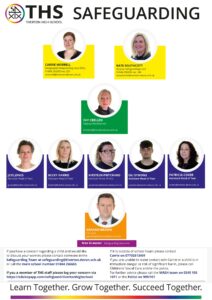
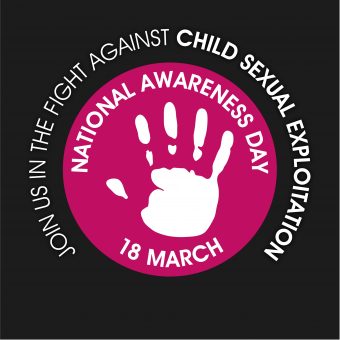 At Tiverton High School we educate our young people to be aware of different things that may put them at risk and what to do if they find themselves in an unsafe situation. Child Sexual Exploitation (CSE) is an area of safeguarding that we teach to our young people. Every year we have the theatre company AlterEgo come in and perform Chelsea’s Choice, which is performance about a girls who was sexually exploited. We also regularly talk about CSE during development days, during tutor time and in assemblies.
At Tiverton High School we educate our young people to be aware of different things that may put them at risk and what to do if they find themselves in an unsafe situation. Child Sexual Exploitation (CSE) is an area of safeguarding that we teach to our young people. Every year we have the theatre company AlterEgo come in and perform Chelsea’s Choice, which is performance about a girls who was sexually exploited. We also regularly talk about CSE during development days, during tutor time and in assemblies.
What is child sexual exploitation (CSE)?
Sexual exploitation is a type of child abuse. It puts a young person at huge risk of damage to their physical, emotional and psychological health.
CSE involves young people and children being ‘groomed’ and sexually exploited. It can take many forms, such as through an apparently ‘consensual’ relationship with an older person or a young person having sex in return for attention, gifts, cigarettes or alcohol.
Parents and carers should be aware of the risk of exploitation brought by the Internet. The most important aspect in protecting children from online threats is direct communication by discussing with them their online behaviours and preferences and informing about safe online behaviour. In addition to that, there are software tools that help to protect children from online threats known as ‘parental control tools’.
Many young people who are being exploited do not realise they are at risk and will not ask for help. Some may see themselves as willing participants in such abuse, not realising that what is happening to them is illegal.
Signs to look out for:
- Has the young person received unexplained gifts or money?
- Do they use their mobile phone excessively and/or secretively?
- Do they have significantly older friends?
- Have they been picked up from home or school by someone you don’t know?
- Are they associating with other young people who are already known to be vulnerable or involved in exploitation?
- Have they started playing truant from school or regularly going missing from home?
- Have they suffered from a sexually-transmitted infection?
- Are they self-harming?
- Has their appearance changed?
For further information on CSE please visit the following websites:
If you are concerned that your child is being sexually exploited please contact the police on 101 (or 999 if you think they are in immediate danger) or MASH 0345 155 1071
If you would like to discuss your concerns with someone in school please contact the safeguarding team safeguarding@tiverton.devon.sch.uk and somebody will be in contact with you as soon as possible.
For more information on how to keep your children safe, please follow the link:
www.devonchildrenandfamiliespartnership.org.uk/
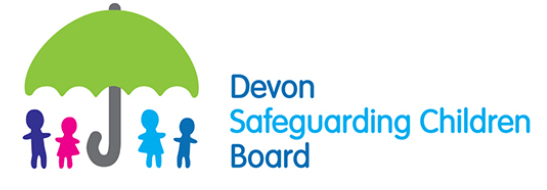
FGM is defined as any procedure that injures the female genital organs for non-medical reasons. It is classed as gender based violence and as child abuse.
For more information please visit the website above or www.childline.org.uk/info-advice/bullying-abuse-safety/abuse-safety/female-circumcision-fgm-cutting/
armful sexual behaviour (HSB) is developmentally inappropriate sexual behaviour displayed by children and young people which is harmful or abusive1.Peer-on-peer sexual abuse is a form of HSB where sexual abuse takes place between children of a similar age or stage of development. Child-on-child sexual abuse is a form of HSB that takes place between children of any age or stage of development.
Harmful Sexual Behaviour – Parent_s guide.pdf (barnardos.org.uk)
Preventing harmful sexual behaviour in children – Stop It Now
Domestic abuse and violence can have an effect on our children and young people in a number of different ways. Young people can be witness to abusive behaviours in the family home, both current and historic as well as being in a domestically abusive relationship themselves.
At Tiverton high School we education all of our young people on how to have Healthy Relationships, we do this by a specific Healthy Relationship workshop for all year 10 students as well as sessions during out development days.
In addition, we work closely with a number of external agencies who offer specialist support for children and young people who have witnessed domestic abuse.
For further information please contact the following organisations:
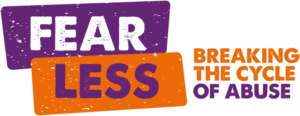 |  | 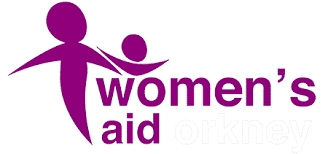 |
| https://www.fear-less.org.uk/ | www.safe-services.org.uk | www.womensaid.org.uk |
The Multi-Agency Safeguarding Hub (MASH) is a partnership between Devon County Council (DCC), children’s social care, education and youth services, Devon NHS health services, Devon and Cornwall Police and the probation service working together to safeguard children and young people.
Remember – if you are concerned about a child or young person in Devon and want to speak to someone, contact the MASH on 0345 155 1071 and give as much information as you can.
Children and young people spend a lot of time online – it can be a great way for them to socialise, explore and have fun. But children do also face risks like online bullying, child sexual exploitation or seeing content that’s inappropriate.
Whether you’re unsure about what happens online or are up to speed with new technology, it’s important that you talk to your child about staying safe.
It may feel daunting, but you don’t need to be an expert on the internet. Understanding what children do online and the risks they face will help you keep your child safe online.
Social Media
For help and advice on different types of social media click here.




![]()
If you would like to talk to someone in school regarding online safety concerns please contact Carrie Morrell.
Student Services morrell@tiverton.devon.sch.uk
The world changes. Children don’t.
The new film by thinkuknow highlights the ongoing need to talk to our children about sex, relationships and the internet.

To report a concern…

Need immediate help?
Do you need immediate help or have a real emergency? If so call 999 or contact your local police 101.
When should I report to CEOP?
We help children stay safe online. Has someone acted inappropriately towards you online, or to a child or young person you know? It may be sexual chat, being asked to do something that makes you feel uncomfortable or someone being insistent on meeting up. You can report it to CEOP click here.
General Information
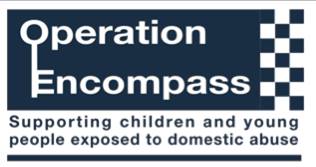 Operation Encompass is a unique Police and Education early intervention safeguarding partnership which supports children and young people exposed to domestic abuse.
Operation Encompass is a unique Police and Education early intervention safeguarding partnership which supports children and young people exposed to domestic abuse.
Operation Encompass is the reporting to schools before the start of the next school day when a child or young person has been involved or exposed to a domestic abuse incident the previous evening.
The information is given in strict confidence to a school’s Key Adult to enable support to be given dependent on the needs and wishes of the child.
For more information please visit:
www.operationencompass.org/
 Sexting is when someone shares sexual, naked or semi-naked images or videos of themselves or others, or sends sexually explicit messages.
Sexting is when someone shares sexual, naked or semi-naked images or videos of themselves or others, or sends sexually explicit messages.
They can be sent using mobiles, tablets, smartphones, laptops – any device that allows you to share media and messages.
A 2016 NSPCC/Office of the Children’s Commissioner England study found that just over one in ten boys and girls (13%) had taken topless pictures of themselves (around one in four of those were girls) and 3% had taken fully naked pictures. Of those who had taken sexual images, 55% had shared them with others. 31% of this group had also shared the image with someone that they did not know.
If you would like further information regarding sexting please visit: www.thinkuknow.co.uk/parents/articles/Nude-selfies-a-parents-guide/
Students
If you have been asked to send sexually explicit messages or you have received some speak to an adult you trust. This could be someone at home or someone one in school.
For more information visit: www.childline.org.uk/info-advice/bullying-abuse-safety/online-mobile-safety/sexting/
